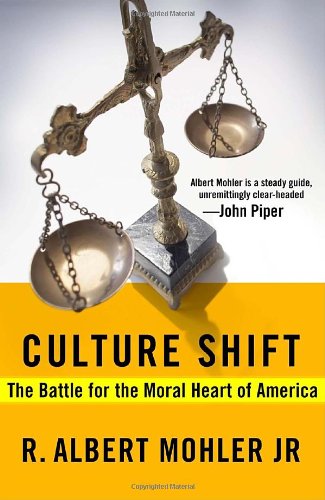A Brief Book Summary from Books at a Glance
About the Author
Dr. R. Albert Mohler, Jr. is president of The Southern Baptist Theological Seminary. He also writes a popular blog and a regular commentary, available at AlbertMohler.com. He lives with his wife and two children in Louisville, Kentucky.
Overview
Mohler turns his attention to the analysis of culture, especially American culture as it effects evangelical Christians on moral issues. Christians cannot afford to be disengaged or uninformed about the world around them – there is much at stake in addressing the needs of the day while speaking the truth in love.
Table of Contents
- Engaging the City of Man
- Christian Morality and Public Law: Three Secular Arguments
- Christian Morality and Public Law: Three Secular Myths
- Christian Morality and Public Law: Five Theses
- The Culture of Offendedness
- A Growing Cloud of Confusion
- All That Terror Teaches
- Needed: An Exit Strategy from Public Schools
- The God Gene
- Are We Raising a Nation of Wimps?
- Hard America, Soft America
- The Post-Truth Era
- Is Abortion a Moral Issue?
- Who’s Afraid of the Fetus?
- God and the Tsunami: Theology in the Headlines
- God and the Tsunami: A Christian Response
- Nineveh, New Orleans, and the City of Man
- Hiroshima and the Burden of History
- The Content of Our Character
- The Challenge of Islam
- The New Atheism
- A Black Cat in a Dark Room
- The New American Family
- Where Did I Come From?
- Redefining Retirement
Summary
Note: Chapter titles appear in bold throughout the text.
We all find ourselves immersed in culture – its entertainment, values, products, messages. Christians cannot afford to retreat from culture, to be uninformed about it, or to embrace it without reservation. Rather, Christians must be faithful to the great commission, and that involves reaching people embedded in the culture, the very culture in which we find ourselves like so many fish in water. Such a situation requires that we thoughtfully engage the world around us as we seek the wellbeing of our neighbors in love.
Engaging the City of Man (chapter 1) involves thinking about Christian faith and politics. Evangelical Christians have been more involved in politics over the past twenty years than at any time since the crusade against slavery in the nineteenth century. To what extent, then, should Christians be involved in the political process? The question has troubled consciences for a long time. From Augustine’s work The City of God to Carl F. H. Henry’s work in the post-World War II era, it is clear that Christians must engage, and loving our neighbors would seem to embrace something of a cultural element. The glory of God is paramount in our worldview.
To that end, The City of God outlines two competing realities: the eternal City of God where all glorify God in unconditional obedience, and the City of Man where citizens claim their own moral autonomy and revolt against God. Preaching bridges this gulf as many are brought into the City of God. But on the cultural level this can be worked out as a political philosophy in which one loves neighbor for the sake of loving God. This avoids the twin forms of disobedience: political disengagement on the one hand and the idolatry of politics on the other.
These considerations prompt us to ask how Christian Morality and Public Law (chapters 2-4) relate to each other. While most of Western civilization would see law as simply a structure given to morality, moderns do not see it this way
[To continue reading this summary, please see below....]The remainder of this article is premium content. Become a member to continue reading.
Already have an account? Sign In
